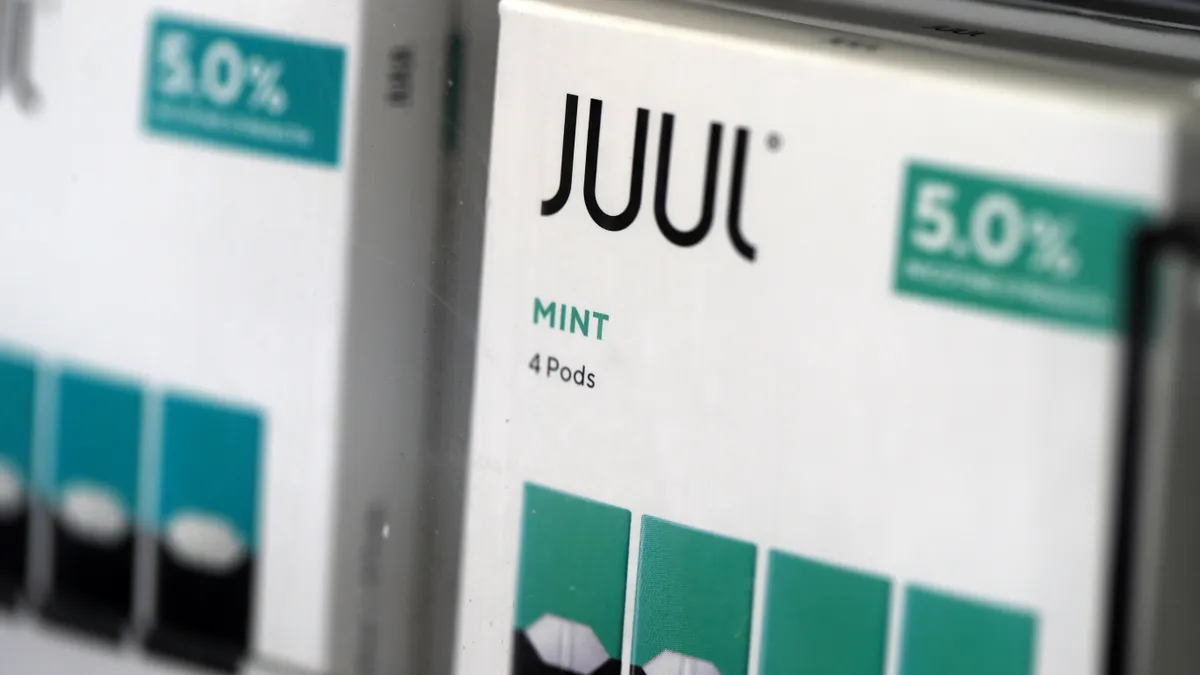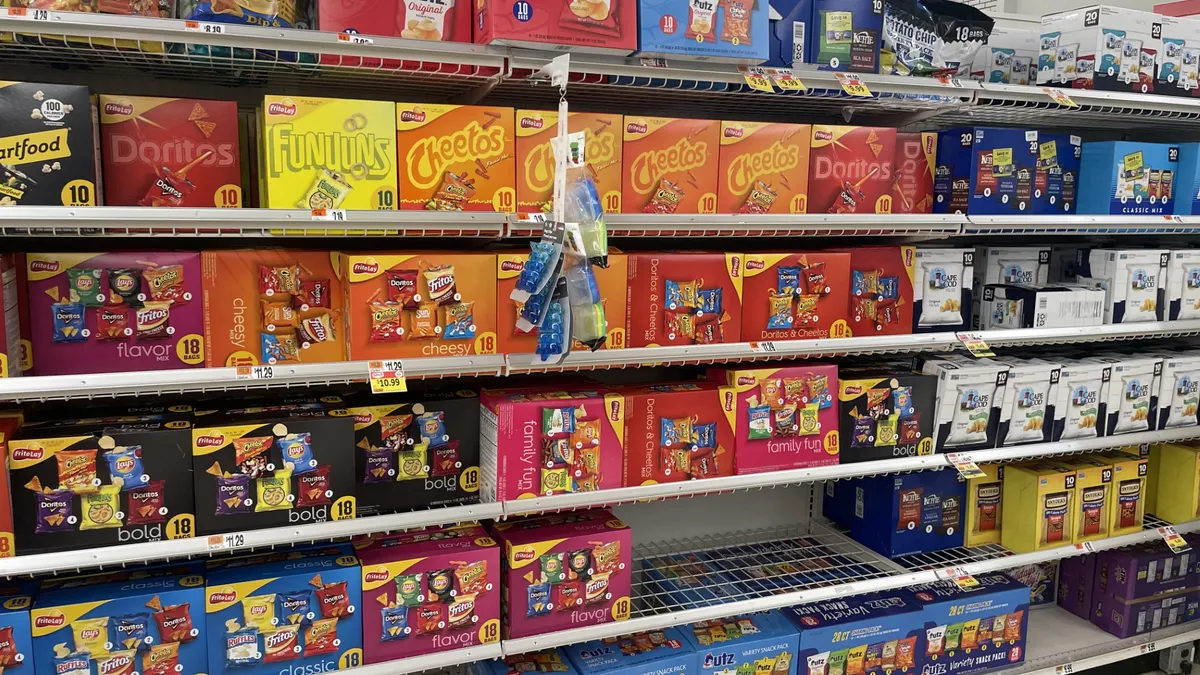Dive Brief:
- Juul Labs has agreed to pay $438.5 million to settle a two-year investigation initiated by 34 states and territories into the e-cigarette maker’s marketing tactics toward underage users.
- The agreement, which was announced Tuesday by Connecticut Attorney General William Tong, who helped lead the investigation, also severely limits how the company can advertise its products. Restrictions include bans on billboard ads, corporate sponsorships, free samples and the depiction of individuals under 35 in its social media advertising.
- The embattled Juul previously paid $87 million to settle investigations launched by four states over marketing tactics it launched in 2018, and is currently appealing a decision by the FDA to pull its products off shelves.
Dive Insight:
In addition to the strict limits on advertising outlined in the settlement, Juul also faces restrictions regarding how its products can be merchandised in stores, how much it can sell in stores and online, and additional age verification as well as retail compliance measures.
Juul, for its part, denied any wrongdoing and said it already implemented many of the marketing limits outlined in the agreement.
“The terms of the agreement are aligned with our current business practices which we started to implement after our company-wide reset in the Fall of 2019,” the company said in a statement.
The multistate investigation, launched in March 2020, focused on marketing tactics Juul had employed. The probe concluded the company targeted underage users in various ways, including offering free samples, hosting launch parties and introducing e-cigarette formulations that produced vapor that was less harsh on the throats of inexperienced users. The company also produced misleading packaging that made it seem as though its e-cigarettes contained less nicotine than they actually did.
“The multistate investigation revealed that JUUL rose to this position by willfully engaging in an advertising campaign that appealed to youth, even though its e-cigarettes are both illegal for them to purchase and are unhealthy for youth to use,” Tong, who led the investigation along with counterparts in Oregon and Texas, said in a statement.
This latest settlement is the largest one to date for Juul, which also faces thousands of other lawsuits over its marketing practices, according to The Wall Street Journal. Over the past year, the company has settled lawsuits brought by North Carolina, Louisiana, Arizona and Washington.
The biggest threat Juul faces may be the FDA. In June, the agency ordered the company to cease its U.S. sales, saying it had not provided enough information to prove that its products are safe. Juul appealed the decision and in early July the FDA agreed to stay its order and conduct a further review of scientific information from the company.
In its statement, Juul said the FDA’s initial review was “substantively and procedurally flawed” and that it’s confident the market ban will eventually be overturned.
“We believe that once the FDA does a complete review of all of the science and evidence presented, as required by law, and without political interference, we should receive marketing authorization,” the company noted.







